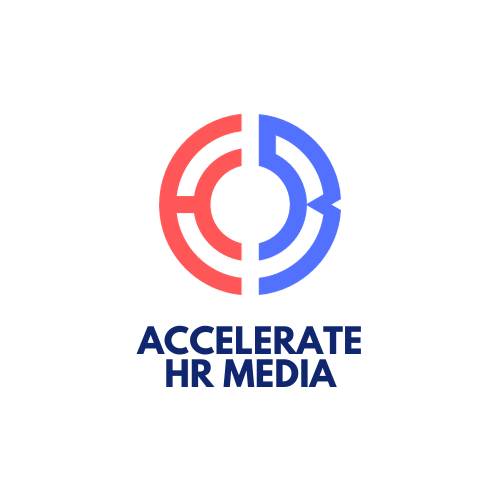
What is Human Resources Outsourcing?
Human Resources Outsourcing (HRO) is when a company hires another company to manage its HR tasks. This can include things like payroll, hiring new employees, managing employee benefits, and following labor laws. By outsourcing these tasks, businesses can focus on what they do best while getting help from experts in HR. In recent years, HR outsourcing has become popular among businesses of all sizes. Whether it’s a small startup or a large corporation, many organizations are realizing the advantages of outsourcing HR tasks. This guide will explore the benefits, challenges, and best practices of HR outsourcing, along with current trends and helpful tools.
How Does Human Resources Outsourcing Work?
The process of HR outsourcing usually involves several steps. First, the company must identify which HR tasks need to be outsourced, such as payroll or benefits administration. Next, they choose an HR outsourcing provider, which could be a Professional Employer Organization (PEO) or a specialized HR firm. Once a provider is selected, the company will negotiate the terms of the contract, including the scope of services, pricing, and service-level agreements. After the contract is signed, the provider will begin implementing the services, which may involve transferring data, training the provider on the company’s processes, and ensuring a smooth transition. Finally, the company must regularly monitor the performance of the HR outsourcing provider to ensure they are meeting the company’s needs. Good communication is key to a successful partnership throughout the process.
Trends in Human Resources Outsourcing
As the business world changes, several trends are shaping the future of HR outsourcing. Many HR outsourcing providers are using advanced technology, such as cloud-based systems and artificial intelligence (AI), to improve their services, helping to make processes faster and more efficient. Companies are also realizing the importance of employee experience and are seeking HR outsourcing providers that offer services promoting employee engagement and well-being. There is a growing trend toward flexible outsourcing models that allow businesses to choose specific HR tasks to outsource instead of committing to a full-service package. Organizations are prioritizing Diversity, Equity, and Inclusion (DEI) initiatives, and HR outsourcing providers are adapting their services to help companies create more inclusive workplaces. Finally, as businesses expand internationally, the demand for global HR outsourcing services is increasing, with providers offering solutions that comply with local labor laws and cultural differences.
Challenges in Human Resources Outsourcing
While HR outsourcing offers many benefits, it also comes with its own set of challenges. Outsourcing HR tasks can lead to a feeling of losing control over important processes, and companies may feel disconnected from their HR activities. Sharing sensitive employee information with an outside provider raises concerns about data security and confidentiality, so companies must ensure that their outsourcing provider has strong security measures in place. Working with an outside provider can also lead to communication challenges, especially if the provider is in a different time zone or country. Employees may resist changes that come with outsourcing, fearing job loss or worrying about the quality of services provided externally. Finally, not all HR outsourcing providers offer the same level of service, so companies must carefully evaluate providers to ensure they meet their specific needs.
Best Practices for Human Resources Outsourcing
To get the most out of HR outsourcing, companies should consider several best practices. First, they should develop a clear HR outsourcing strategy that outlines their goals and objectives before outsourcing. This will help guide their decisions throughout the process. Second, they should conduct thorough research on potential HR outsourcing providers, comparing their services, pricing, and reputation in the industry. Third, they should establish clear communication channels with their outsourcing provider, engaging in regular check-ins and updates to help address any issues that arise. Fourth, they should create an HR outsourcing checklist of tasks and responsibilities that will be outsourced to ensure that nothing is overlooked during the transition. Finally, they should continuously evaluate the performance of their HR outsourcing provider using key performance indicators (KPIs) to assess their effectiveness and make adjustments as needed.
Tools and Software for Human Resources Outsourcing
Several tools and software can help make HR outsourcing easier. HR Management Systems (HRMS) help manage employee data, payroll, and benefits administration, with popular options including Workday, BambooHR, and Gusto. Applicant Tracking Systems (ATS) simplify the hiring process by managing job postings, applications, and candidate communications, with examples including Greenhouse, Lever, and Jobvite. Payroll software automates payroll processing, tax calculations, and compliance, with popular options including ADP, Paychex, and QuickBooks Payroll. Performance Management Tools help organizations track employee performance, set goals, and conduct evaluations, with examples including Lattice, 15Five, and Culture Amp. Finally, Employee Engagement Platforms facilitate employee feedback, surveys, and recognition programs to enhance engagement, with popular options including Officevibe, TINYpulse, and Qualtrics.
Benefits of Human Resources Outsourcing
HR outsourcing offers numerous benefits for businesses of all sizes. By outsourcing HR tasks, companies can save money by avoiding the costs associated with maintaining an in-house HR department, such as salaries, benefits, and training for HR staff. Outsourcing also improves efficiency, as HR outsourcing providers specialize in HR tasks and can handle them more quickly and effectively than an internal team. Companies that outsource HR gain access to a team of HR professionals with diverse skills and experience, which can help improve HR processes and ensure compliance with regulations. Outsourcing allows businesses to focus on their core activities, such as product development and customer service, rather than getting caught up in administrative tasks. Finally, HR outsourcing provides flexibility, as companies can scale HR services up or down as their business needs change.
Types of Human Resources Outsourcing Services
HR outsourcing encompasses a wide range of services, each designed to address specific HR functions. Some common types of HR outsourcing services include payroll outsourcing, recruitment process outsourcing (RPO), and employee benefits outsourcing. Payroll outsourcing involves hiring an outside company to handle employee paychecks, tax withholdings, and other payroll-related tasks. RPO is when a company hires an outside provider to manage all or part of its hiring process, including tasks like posting job ads, screening candidates, interviewing, and onboarding new employees. Employee benefits outsourcing involves managing a company’s employee benefits programs, such as health insurance, retirement plans, and paid time off. By outsourcing these tasks, businesses can offer competitive benefits to their employees while ensuring compliance with relevant laws and regulations.
Choosing the Right Human Resources Outsourcing Provider
Selecting the right HR outsourcing provider is crucial to the success of an outsourcing initiative. Companies should look for providers with extensive experience in their industry and a proven track record of delivering high-quality HR services. It’s important to check the provider’s client testimonials and case studies to gauge their effectiveness. The provider should use modern, secure technology to manage HR tasks and protect data, with robust systems in place for data security and compliance. Flexibility is also key, as the provider should be able to adjust their services as the company’s needs change. Good customer service and transparent pricing are also essential when choosing an HR outsourcing provider.
Conclusion
Human Resources Outsourcing is a valuable strategy that can help businesses streamline their HR functions, reduce costs, and access specialized expertise. By understanding the benefits, challenges, and best practices of HR outsourcing, organizations can make informed decisions about whether it’s the right choice for them. As companies consider outsourcing HR functions, they should keep in mind the importance of developing a clear strategy, conducting thorough research, and maintaining open communication with their provider. By using the right tools and software, companies can enhance the effectiveness of their HR outsourcing efforts. In today’s changing business environment, embracing HR outsourcing can give companies a competitive edge, allowing them to focus on their core activities while ensuring that their HR needs are met efficiently and effectively. Whether a small business or a large corporation, HR outsourcing can help organizations achieve their goals and improve overall performance.

